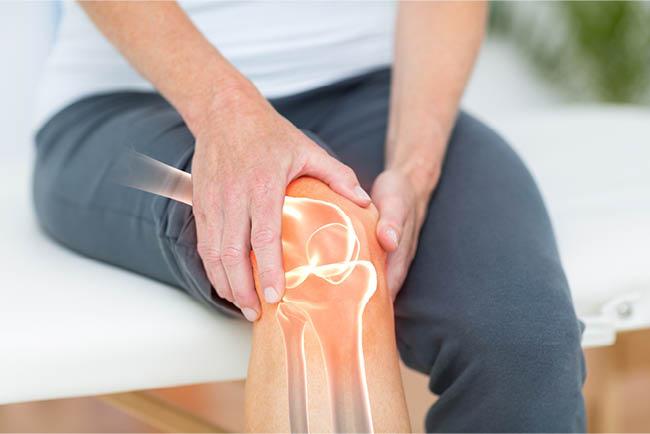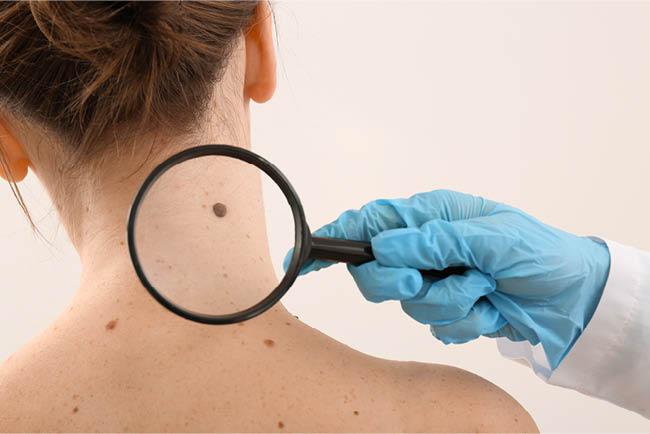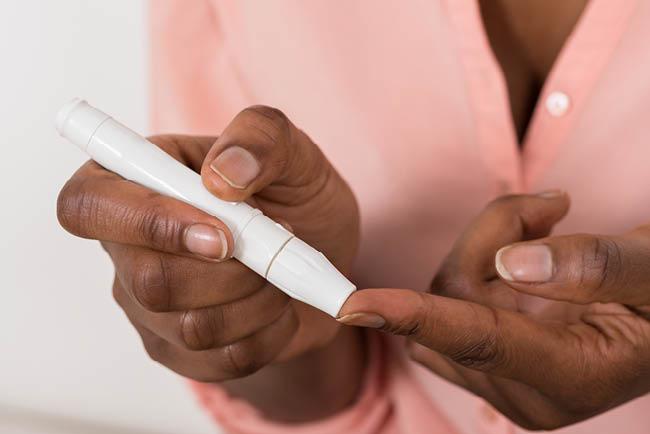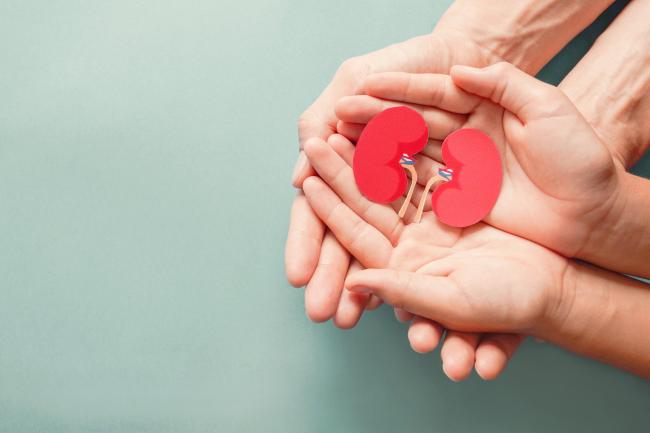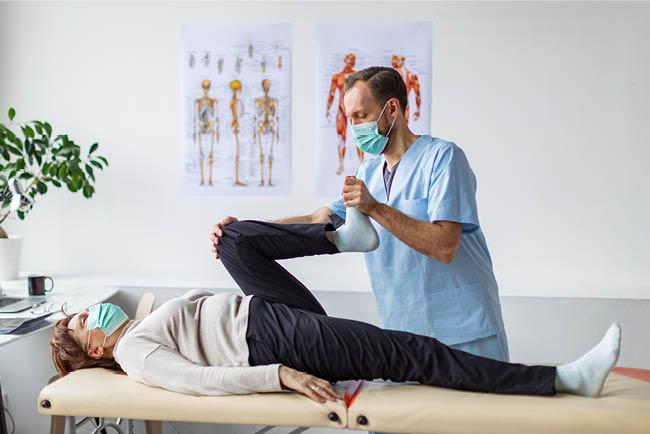Search Studies
Research studies are looking for volunteers just like you. Both healthy volunteers and participants with specific health conditions are needed to help answer important questions impacting the health of our friends and family. Join us to improve the health of others.
-
A Prospective, Multi-center, Randomized Controlled Blinded Trial Demonstrating the Safety and Effectiveness of VNS Therapy® System as Adjunctive Therapy Versus a No Stimulation Control in Subjects With Treatment-Resistant Depression (RECOVER)
Official Title A Prospective, Multi-center, Randomized Controlled Blinded Trial Demonstrating the Safety and Effectiveness of VNS Therapy® System as Adjunctive Therapy Versus a No Stimulation Control in Subjects With Treatment-Resistant Depression (RECOVER)Purpose
The purpose of this study is to examine whether active VNS Therapy treatment is superior to a no stimulation control in producing a reduction in baseline depressive symptom severity, based on multiple depression scale assessment tools at 12 months from randomization. The duration of the study will consist over a 5 year period. You will visit the study site approximately 23 times after your implant surgery.
Could this study be right for you?
- Aged 18 years or older
- Must be in a major depressive episode (MDD or bipolar disorder) for ≥ two years or have at least had four episodes of depression including the current episode
- Patients depressive illness meets a minimum criteria of four prior failed treatments of adequate dose and duration
Age Range
18 and up -
A Registry for Those with Hypophosphatasia (HPP)
Official Title AN OBSERVATIONAL, LONGITUDINAL, PROSPECTIVE, LONG-TERM REGISTRY OF PATIENTS WITH HYPOPHOSPHATASIAPurpose
The purpose of this registry is to collect information about Hypophosphatasia (HPP), a rare bone disorder characterized by the abnormal development of bones and teeth. This long-term registry will collect and store patient medical information, and other related information to use in medical research. The registry may help researchers better understand the condition and learn more about patients who have HPP. In the future, this data may help other people with HPP.
Could this study be right for you?
- 18 years of age or older
- Been diagnosed with Hypophosphatasia (HPP) - a rare genetic disorder characterized by the abnormal development of bones and teeth.
- Not participating in another Alexion-sponsored clinical trial
Age Range
18 and up -
A Study About Recovery After ACL Reconstruction (RARE)
Official Title Disability after ACL Reconstruction: Development of an Alternative Model of CarePurpose
The anterior cruciate ligament (ACL) in your knee can be injured and treated with an ACL reconstruction surgery. An ACL reconstruction may impact function, muscle strength, the way you move, and knee joint health. However, outcomes at 2 years after ACL reconstructions in young persons are not well-understood. Findings from this study will provide information regarding the clinical, function, muscle strength, and movement patterns after ACL injury and reconstruction to help inform physicians and physical therapists who work with these patients.
Could this study be right for you?
You may be eligible if:
- You are between the ages of 16-35 years old
- 2 years (+/- 8 months) status post ACL Reconstruction
- Regularly participated in physical activity prior to their ACL injury
Age Range
16 and up -
A Study Comparing Upadacitinib to Dupilumab in Adult Subjects with Moderate to Severe Atopic Dermatitis
Official Title M16-046: A Phase 3b Multicenter, Randomized, Double-Blind, Double-Dummy, Active Controlled Study Comparing the Safety and Efficacy of Upadacitinib to Dupilumab in Adult Subjects with Moderate to Severe Atopic DermatitisPurpose
The purpose of this study is to compare the effectiveness and safety of upadacitinib (ABT-494) versus dupilumab for the treatment of adult subjects (18-75 years of age) with moderate to severe atopic dermatitis (AD) who are candidates for systemic therapy.
Could this study be right for you?
- Subject must have chronic Atopic Dermatitis (AD) with onset at least 3 years prior to study participation
- Subject must have > or = 10% body surface area involvement of atopic dermatitis
- Subject must have had inadequate response to topical corticosteroids or topical calcineurin inhibitors within the past 6 months
- OR documented systemic treatment for AD within the past 6 months
- OR for whom topical treatments are otherwise medically inadvisable
- No prior exposure to any JAK inhibitor (e.g., ruxolitinib, tofacitinib, baricitinib, upadacitinib, PF-04965842, and filgotinib)
- No prior exposure to dupilumab
Age Range
18 and up -
A Study for Night Shift Workers
Official Title Transcranial Direct Current Stimulation Therapy for Sleepiness Related to Shift Work Disorder (tDCS-SWORD)Purpose
This research study aims to determine the effects of a noninvasive form of brain stimulation on alertness for night shift workers.
Could this study be right for you?
- You are age 18 to 65
- You are currently working the night shift at least 3x/week
- You are suffering from sleepiness at work
- You do not have significant heart and lung problems
- You work within the Columbus, OH area
Age Range
18 and up -
A study for those undergoing MLF Surgery
Official Title SIJ Stabilization in Long Fusion to the Pelvis: Randomized Controlled TrialPurpose
To determine whether placement of iFuse-3D across the ssacroiliac joint (SIJ) in the Bedrock configuration provides
clinical and/or radiographic benefits in patients undergoing multilevel spine fusion (MLF) surgery with fixation to the pelvisCould this study be right for you?
You may be eligible for this study if you are:
- Age 21-75 at time of screening
- Scheduled for multilevel (4 or more levels) spinal fusion surgery with planned fixation to the pelvis using S2AI screws
- Patient has the necessary mental capacity to participate and is physically able to comply with study protocol requirements
Exclusion Criteria
- The reason for your multilevel spine fusion surgery is any of the following:
- Congenital neuromuscular disease
- Prior pelvic fixation (already have S2AI or iliac bolts in place, current surgery indicated to revise this hardware)
- Grade IV spondylolisthesis
- Prior sacroiliac joint fusion/fixation on either side
- Presence of spinal cord stimulator
- Presence of severe hip pain that could impair functional and quality of life improvement from complex spine surgery
- Surgeon plans to use iliac screw for pelvic fixation
- Severe osteoporosis
- Known allergy to titanium or titanium alloys
- Current local or systemic infection that raises the risk of surgery
- Currently receiving or seeking short- or long-term worker's compensation and/or currently involved in injury litigation related to the SIJ or low back pain.
- Currently pregnant or planning pregnancy in the next 2 years
- Known or suspected drug or alcohol abuse
- Fibromyalgia
Age Range
21 and up -
A Study for Those with Chronic Pancreatitis
Official Title A PHASE 1, SINGLE DOSE PK AND SAFETY STUDY WITH NI-03 FOLLOWED BY A PHASE 2, RANDOMIZED, DOUBLE-BLIND, PARALLEL-GROUP DOSE-RANGING STUDY TO EVALUATE THE SAFETY AND EFFICACY OF NI-03 COMPARED TO PLACEBO IN SUBJECTS WITH CHRONIC PANCREATITISPurpose
The purpose of this study is to learn if a study drug called NI-03 (also known as Camostat) can help people with chronic pancreatitis. We want to find out what effects, good or bad, the study drug has on the disease. It has been approved in Japan and has been available by prescription for the treatment of the acute pain associated with chronic pancreatitis. The study drug will not be approved for sale in the United States until tests from studies like this one show that it is safe and effective.
Could this study be right for you?
- You are between the ages of 18-80
- You have a diagnosis of chronic pancreatitis
- For males: documented surgical sterilization, sexual abstinence, or agreed upon means of contraception from screening until 28 days after final dose of study medication is required
- For females: documented surgical sterilization, sexual abstinence, postmenopausal status for at least 1 year, or agreed upon means of contraception from screening until 28 days after final dose of study medication is required
Age Range
18 and up -
A Study for Those with Chronic Pancreatitis - The PROCEED Study
Official Title Prospective Evaluation of Chronic Pancreatitis for Epidemiologic and Translational Studies PROCEED Study)Purpose
This study is done for researchers to understand pancreatitis and learn how the disease progresses naturally over time.
From the results of this study, researchers hope to develop some lab tests to support early diagnosis of chronic pancreatitis and to also discover any genetic factors that may affect your chances of developing chronic pancreatitis. The results of this study may also provide information that will open opportunities for new drug discovery.
Could this study be right for you?
- You have a history of acute or chronic pancreatitis OR
- You have experienced pain in your abdomen that a doctor has suggested could be due to pancreatitis
- You are between the ages of 18 and 75
Age Range
18 and up -
A Study for Those with Diabetic Macular Edema--The BOULEVARD Study
Official Title A PHASE 3, DOUBLE-MASKED, RANDOMIZED STUDY OF THE EFFICACY AND SAFETY OF INTRAVITREAL AFLIBERCEPT INJECTION IN PATIENTS WITH MODERATELY SEVERE TO SEVERE NONPROLIFERATIVE DIABETIC RETINOPATHYPurpose
The purpose of this 28-week study to investigate the effects and safety of a medication in participants with Center Involving Diabetic Macular Edema (CI-DME). .
Could this study be right for you?
- 18 years and older
- Macular edema associated with diabetic retinopathy (DR)
- Diagnosis of diabetes mellitus (DM)
Age Range
18 and up -
A Study for Those With Type 2 Diabetes AND Who Are Experiencing Food Insecurity
Official Title Linking Education, Produce Provision, and Community Referrals to Improve Diabetes Care (LINK)Purpose
The purpose of this study is to improve hemoglobin A1c levels in patients with type 2 diabetes experiencing food insecurity.
The study will examine the effects of a produce referral program alone and in combination with other interventions. Our research is designed to develop a deeper understanding of how to provide patients with type 2 diabetes that are experiencing food insecurity with the resources, skills, and education to manage their health and social needs.
Could this study be right for you?
Inclusion Criteria:
- Age 18 years and older
- Type 2 diabetes based on American Diabetes Association Criteria
- Hemoglobin A1c level > 7.5%
- Worried about running out of food before you have money to buy more
Exclusion Criteria:
- Pregnant
-
A Study of DBS-Expert system used during Deep Brain Stimulation For Parkinson's Disease
Official Title DBS-Expert: Automated Deep Brain Stimulation Programming Using Functional Mapping Phase IIPurpose
Deep Brain Stimulation (DBS) surgery is FDA approved for the treatment of Parkinson's Disease. The purpose of this study is to examine a technology (DBS-Expert system) that uses objective measurements to guide DBS programming. The DBS-Expert system analyzes motion data and provides recommendations to the physician or healthcare professional regarding DBS programming settings.
Could this study be right for you?
You may be eligible if you:
- Over the age of 18
- Able and willing to provide informed consent
- Clinical diagnosis of idiopathic Parkinson's Disease
- Implanted Boston Scientific DBS system
Exclusion Criteria
- You are currently participating in any study with an investigational medicinal product (IMP) or investigational device.
Age Range
18 and up -
A Study of Esketamine Nasal Spray, Administered as Monotherapy, in Adult Participants with Treatment-resistant Depression
Official Title A Study of Esketamine Nasal Spray, Administered as Monotherapy, in Adult Participants with Treatment-resistant DepressionPurpose
The purpose of this study is to see if esketamine nasal spray alone is effective as a medication to improve depressive symptoms in adults with treatment-resistant depression when compared with placebo nasal spray.
The duration of the study consists up to a maximum of 24 weeks.
Could this study be right for you?
- Aged 18 years or older
- Must have had no response (less than 25% improvement) to at least 2 oral antidepressant treatments in the current episode of depression
Age Range
18 and up


